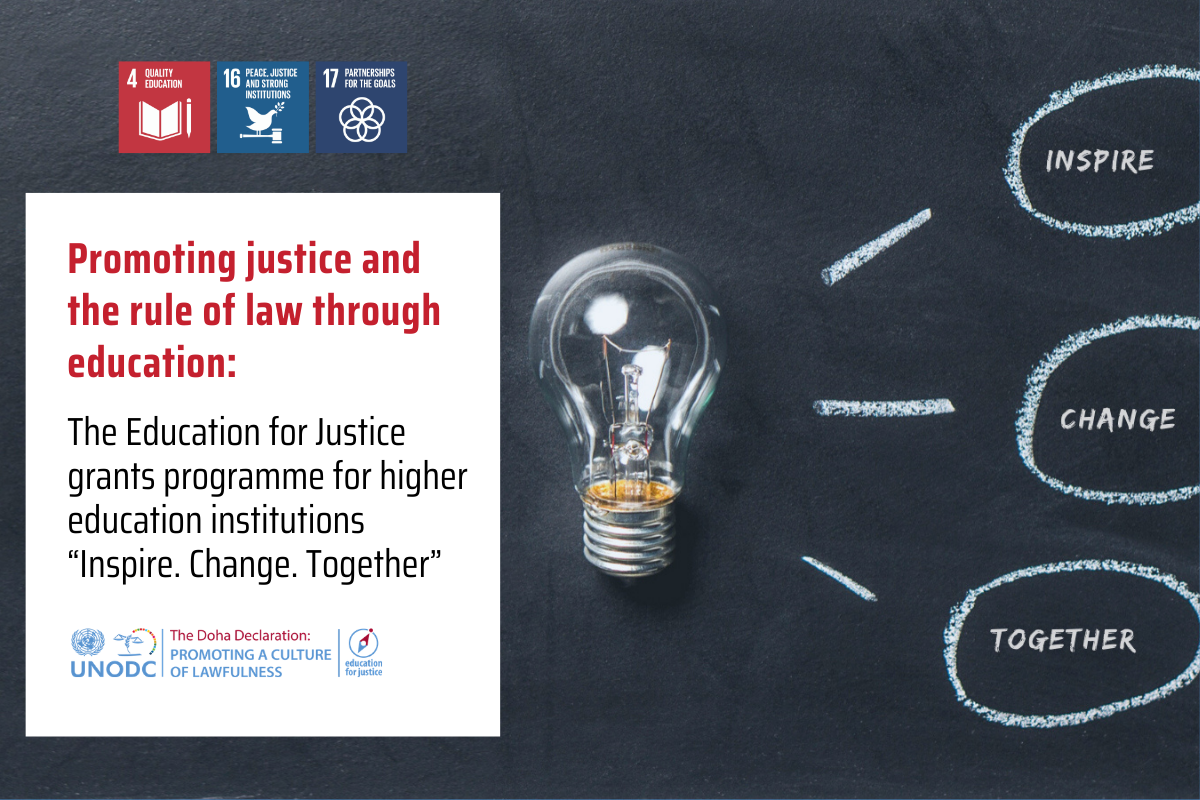Strengthening global integrity and ethics: UNODC finalizes series of new university modules under the Education for Justice initiative
11 May 2018 - Some 30 academics from across the globe recently gathered at the European Public Law Organization (EPLO) to finalize and sign-off on a new series of UNODC university modules, which will be launched as an online tool next month. The 14 modules, which are designed to be used by lecturers in any part of the world, aim to boost teaching around integrity and ethics. The gathering at the end of April was the second expert meeting dedicated to the modules, following an initial one also held at the ELPO in November 2017.
The modules ultimately seek to enhance students' ethical awareness and commitment to acting with integrity, and equip them with the necessary skills to apply and spread these norms in life, work and society. Addressing this at the opening of a four-day expert meeting that reviewed and validated the modules, UNODC's Corruption and Economic Crime Branch Chief, Dimitri Vlassis, commented on the benefits of this type of product: "If young people acquire sufficient and appropriate education, they will be able to make a significant contribution towards preventing and combating crime and corruption, thus bringing about change for a better future."
Over the course of their development, the modules have benefitted from the involvement and support of more than 70 academic experts from over 30 countries, ensuring different cultural and other considerations are taken into account. The modules now cover a number of essential integrity and ethics-related topics, including universal values; ethics and society; ethical leadership; diversity and pluralism; behavioural ethics; the gender dimensions of ethics; and how integrity and ethics relate to important fields such as business, law, media, public service and other professions.
|
To increase their effectiveness, the modules connect theory to practice by encouraging critical thinking and the use of innovative interactive teaching approaches such as experiential learning and group-based work. The modules are multi-disciplinary and can be integrated as ethics components in non-ethics courses. By focusing on common universal values, the modules leave room for diverse perspectives and lecturers can easily adapt them to different local and cultural contexts.
The modules form part of the wider work being carried out by UNODC under the Education for Justice (E4J) initiative. Through developing age-appropriate educational materials on topics related to the rule of law, and integrating those materials into the curricula of schools and universities, E4J ultimately looks to build a culture of lawfulness among children and youth.
Each module is designed as a three-hour class, with educators also provided guidelines as to how to develop these into a full course. It contains a discussion of relevant issues as well as suggestions for in-class exercises, student assessments, slides and other teaching tools that lecturers can adapt and integrate into existing university courses and programmes. UNODC is also developing a 'Teaching Guide on Integrity and Ethics' that will accompany the modules and provide additional pedagogical guidance.
Additional information:


